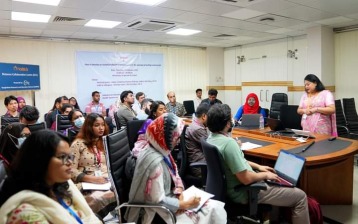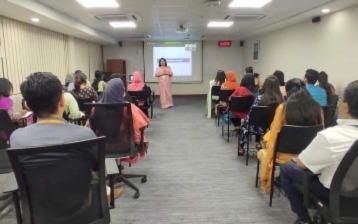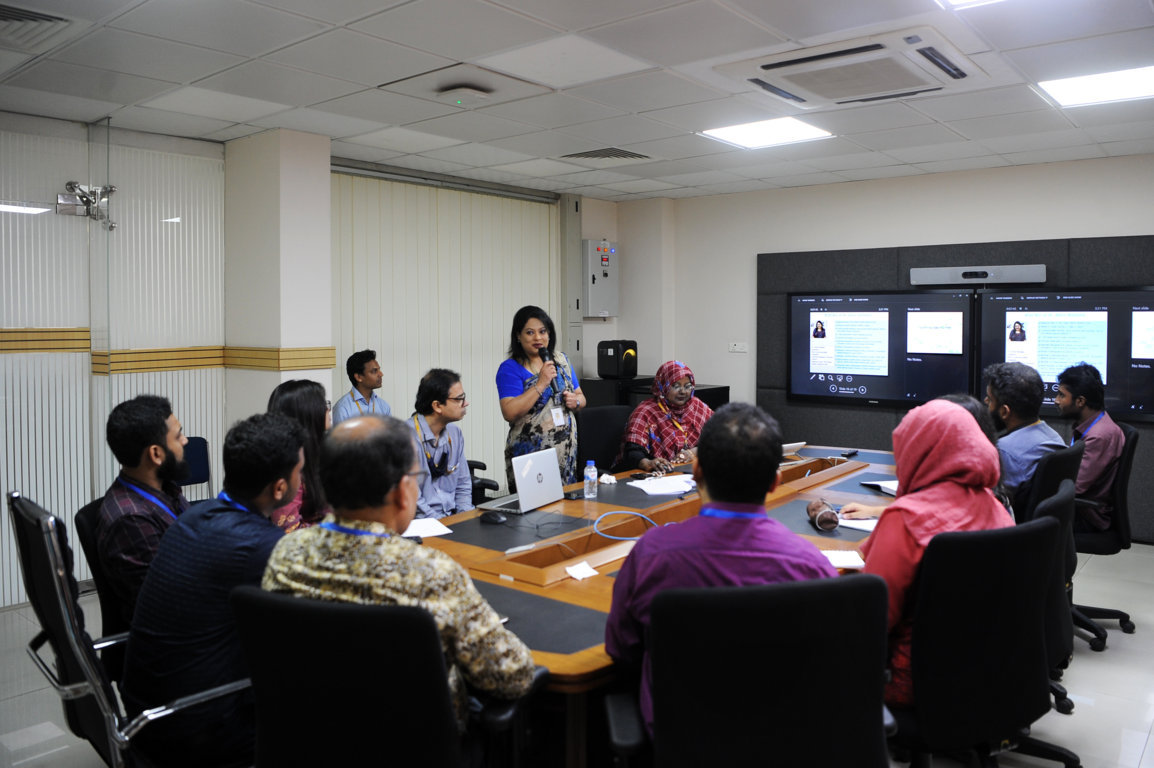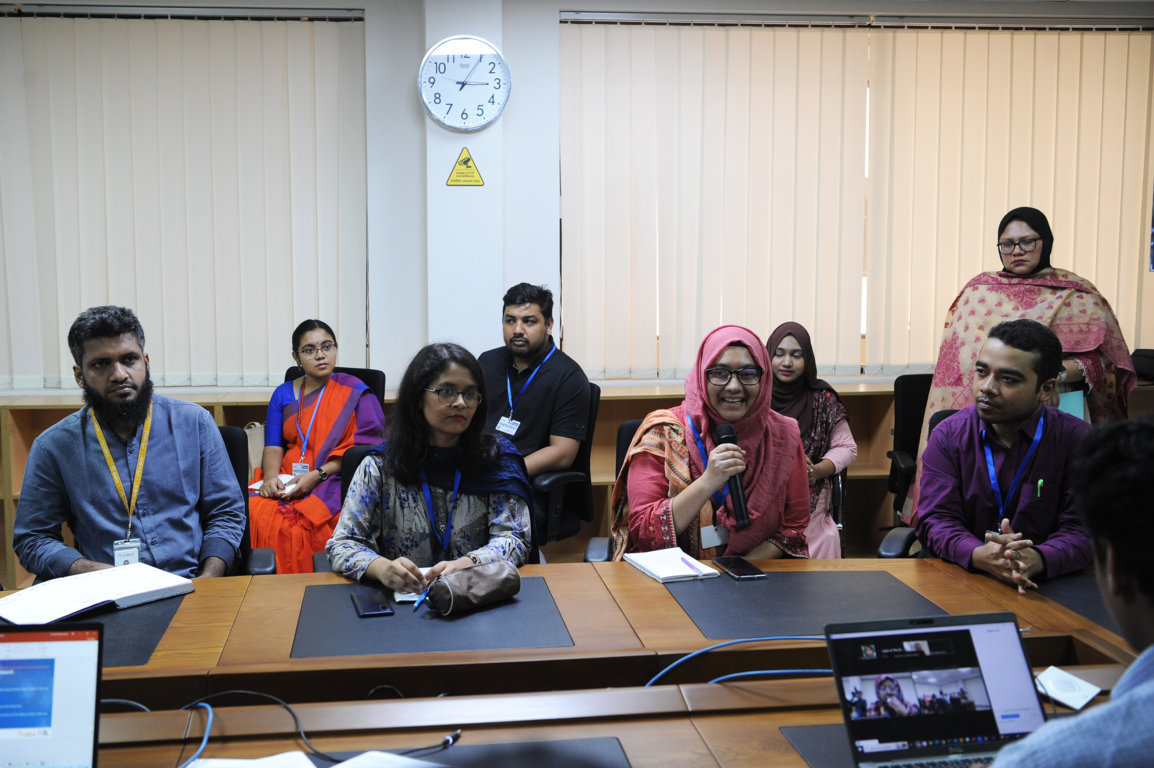
The Global Health Network Asia (TGHN Asia) organized a seminar on “How to develop an analytical plan for a research project- the gateway of writing a manuscript” that was held on 23rd February 2023. This session was conducted under the project “A New Ecosystem for Health Research & Data Science” and hosted by icddr,b. Objective of the session was to give an overview on developing an analytical plan for research projects. Individuals from diverse backgrounds including public health researchers and clinicians from national institutes attended the event. Amongst the 150 participants of the hybrid seminar, about 90 of them joined in-person. The seminar was facilitated by Dr. Aliya Naheed, Scientist, Initiative for Non-Communicable Diseases, Regional Lead, The Global Health Network Asia, Health Systems and Population Studies Division, icddr,b. The seminar began with a brief introduction of The Global Health Network Asia by Dr. Salvia Zeeshan, Regional Coordinator, The Global Health Network Asia.
The main feature of the session was the interactive session where all participants had an opportunity to ask questions. The questions were mostly on the analytical plan, strategies to prepare a high level outline and starting point of writing manuscript. The attendees left positive remarks about the seminar and mentioned how the knowledge gained from the event will help them select an appropriate analytical plan for their research and develop conceptual frameworks. They were also excited seeing the highlights of The Global Health Network Asia and felt that this was a gateway for writing research protocol and manuscript.
TGHN Asia plans to conduct more workshops on a priority basis at national and global level for building research capacity and leadership in the Asian region. All the participants showed their interest to be connected with the platform to improve their professional skills and enhance their networking capacities.
 |
 |
TGHN Asia conducted webinar on “Introduction to Ethics in Research”
The Global Health Network organized a hybrid webinar on “Introduction to Ethics in Research” that was held on May 30 at 3.0 PM BST. This session was conducted under the project “A New Ecosystem for Health Research & Data Science” and hosted by The Global Health Network Asia. The aim of the webinar was to provide participants with a fundamental understanding of research ethics. Attendees learned about the basics of ethics, informed voluntary consent, the fundamental principles of ethics, and the evaluation of ethical issues in health research. A total of 173 participants attended the session, including 143 who joined virtually and around 30 who joined in person. Dr. Salvia Zeeshan, the Regional Manager for The Global Health Network Asia described the aim of the hub which is to improve health research capacity in Asia through a variety of programs, including learning modules, workshops, and mentorships. She also mentioned that TGHN Asia will support the strengthening of capacity for grant management, finance, and project management for health research. The hub is currently supporting the establishment of research clubs, data science clinics, workshops, and mentorship programs.
Dr. Aliya Naheed, scientist, icddr,b and regional lead, The Global Health Network Asia was the key speaker in the sessions and delivered talk on “Introduction to Ethics in Research”. Dr. Naheed emphasized the importance of ethical considerations, such as respecting humanity, prioritizing participants' interests over researchers', ensuring participants' autonomy, and promoting beneficence towards them. She also touched upon the significance of maintaining confidentiality, privacy, and obtaining informed written consent from participants. Dr. Naheed share her extensive experience in various ethical provisions. The webinar concluded with a question-and-answer session, allowing participants to engage and gain further insights into ethical considerations in research.
During the question and answer session, participants share experience and asked difference questions. For example, one researcher asked that how to effectively communicate the time constraints and potential impact of delayed approvals from the research ethics board without undermining ethical review, drawing on their academic and professional background. The speaker advised researchers to be respectful and try to understand the concerns raised by the ethics board. They suggested being attentive to the issues raised and honestly addressing what can and cannot be addressed. Additionally, researchers can ask the ethics board for suggestions on how to solve specific problems. If a logical argument is required, strong references and background information should be provided. In cases of lack of understanding, setting up a meeting with the chair or director of the ethics committee can help clarify concerns.
 |
 |